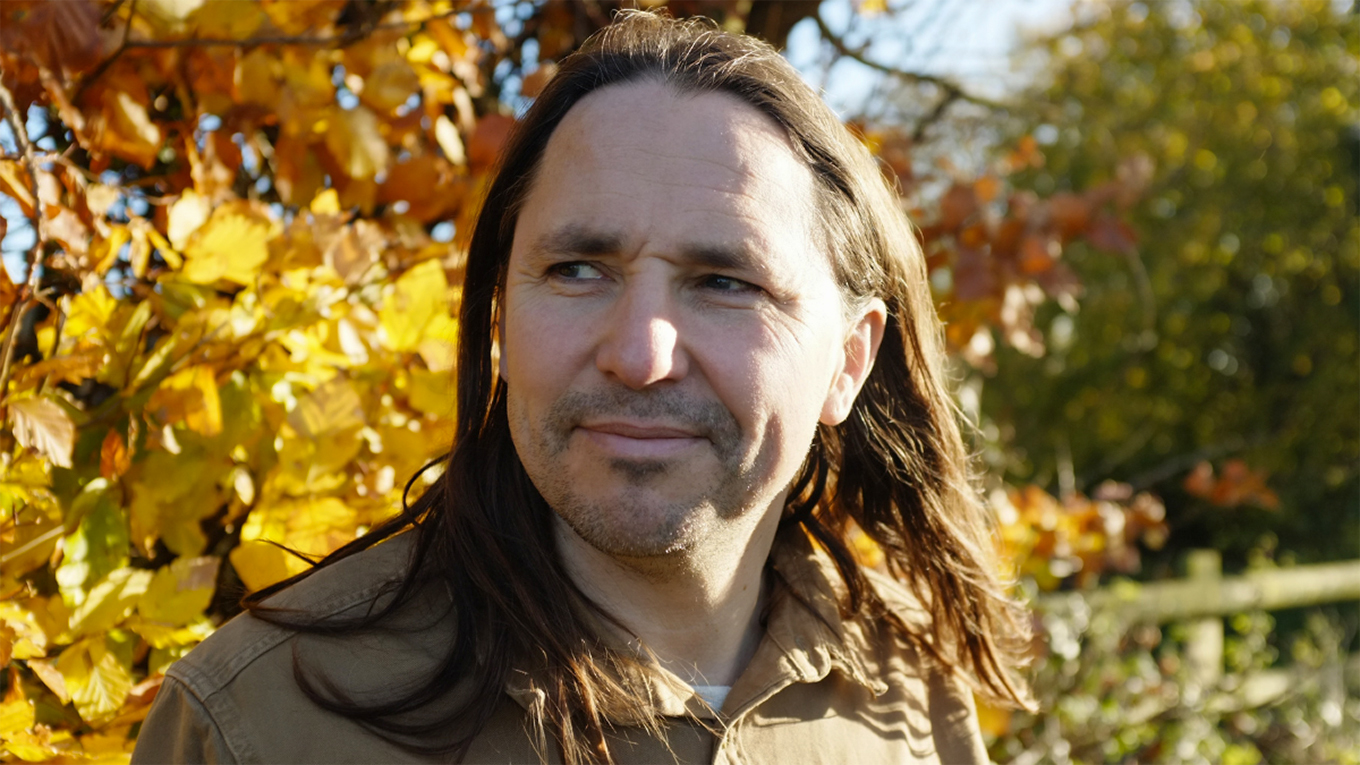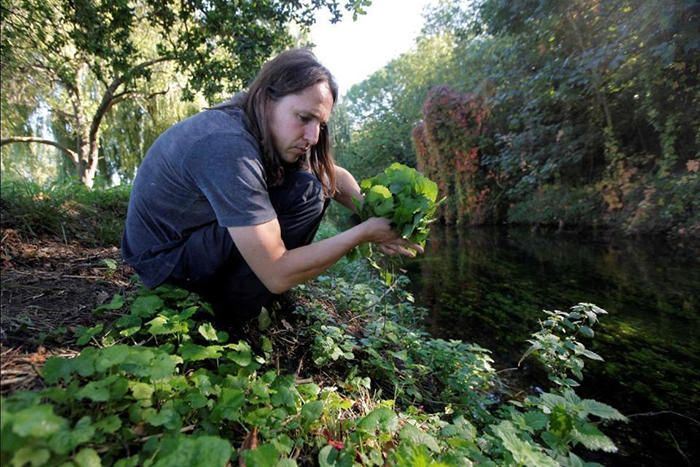
PK Podcast 040: Miles Irving On Wild Foods, Foraging, Health And Connecting With Nature
Miles Irving, is one of the foremost professional foragers in the UK, author of The Forager Handbook, founder and director of Forager Ltd and host of the WorldWild podcast.
Miles’s interest in foraging goes back to his childhood but a chance conversation led to him turning this interest into a career. Miles was able to start supplying restaurants with foraged plants and this quickly expanded, ultimately leading to him to supplying well-known chefs and restaurants such as Jamie Oliver, Mark Hix, Heston Blumenthal and The Ivy.
His company Forager Ltd has expanded to source nearly 500 wild ingredients and Miles has grown to be one of the most respected professional foragers. Miles continues to push the boundaries of wild food and advocates the reintroduction of foraged foods into regular diets. His Foraging Manifesto is well worth reading. Links to this and other aspects of our conversation can be found further down this page.
Directly below you can play our conversation which is both wide-ranging and in-depth…. Our conversation forms Episode 40 of the Paul Kirtley Podcast…
How To Listen To This Podcast
You can listen to this podcast here on my website by using the player above. Just press the play button.
You can download the podcast episode .mp3 file by right-clicking on the download link to save the .mp3 file down to your local machine/device.
Subscribe to The Paul Kirtley Podcast on your favourite podcast app:
Subscribe to the Paul Kirtley Podcast on Apple
Subscribe to the Paul Kirtley Podcast on Spotify
Subscribe to the Paul Kirtley Podcast on Audible
Subscribe to the Paul Kirtley Podcast on Player FM
Subscribe to the Paul Kirtley Podcast on Podchaser
Listen to The Paul Kirtley Podcast on Soundcloud
Books Mentioned
Antonio Carluccio – Antonio Carluccio Goes Wild
Miles Irving – The Forager Handbook
People Mentioned In This Podcast
John AkeroydMichel BrasFrançois CouplanSamuel ThayerMarc Veyrat
Other Links For This Podcast
https://www.forager.org.uk/Born to be Wild: A Foraging ManifestoMiles’s CoursesThe WorldWild PodcastForager on InstagramNOMA‘Exceptional’ chef Liu Jun cooked, killed by death cap mushrooms

Thanks For Listening!
Thanks for joining me on this podcast. If you have any comments about this episode, please leave them in the comments section below.
If you enjoyed this episode, please share it using the social media buttons at the top of this page. Thanks!
And Finally…
Finally don’t forget to leave an honest review & rating on iTunes or on Stitcher.
Ratings and reviews are extremely helpful and greatly appreciated! They do matter in the rankings of this podcast and I read each and every one of them.
Related Material On Paul Kirtley’s Blog
PK Podcast 035: Anna Lewington On Adventures In Ethnobotany And The Bounty Of Birches
PK Podcast 015: John Rensten On Urban Foraging
PK Podcast 010: Alyssa Crittenden On The Hadza, Honey And The Human Diet
23 thoughts on “PK Podcast 040: Miles Irving On Wild Foods, Foraging, Health And Connecting With Nature”
Fascinating conversation. I would call myself a forager and a wannabe bushcrafter so to have you both sharing your stories together was a blast!
Thank you for listening Dafydd. I’m glad you enjoyed the conversation.
Warm regards,
Paul
Absolute Inspiring Conversation!! (That good I put it in capitals)
….nothing more to add that could or would take it to a higher level.
Warmest regards
Andy
Excellent conversation Paul, very inspirational. Thank you for sharing.
It struck me that Miles and Will Lord are kindred spirits.
All the best
B
🙂 Thanks Brian. Glad you enjoyed it.
Cheers,
Paul
I enjoy almost all your podcasts but this was another level. Great to hear all the tangents because it was a proper conversation and not an interview. I really connected with his ideas of humans returning to their place in the ecosystem. Rewilding people not just landscapes. I als enjoyed his rant about the food industry. Thanks Paul.
Thank you for your feedback Les. I’m glad you enjoyed this conversation in particular, as did I.
Lots to think about indeed.
Warm regards,
Paul
“The empty tin sounds loudest.” First time I heard that. It rings true. 😉
We do need to validate all we hear, and from different legit sources, not Wikipedia either.
I must listen again. Too many nuggets to collect in one go.
Thanks Paul.
Thanks for your comments Marcel. I’m glad you’ll find value in revisiting this episode.
Warm regards,
Paul
Evening paul,
Just a quick question about hog weed. After getting into bush craft and wild eatables, talking with friends over fire why was hog weed never brought up in school ? being young and full of beans we played in a fields full of hog weed not knowing the consequences . I personally think it should be talked about to young children so they can have the knowledge about the deadly plant.
Hi Kevin,
Thanks for your question.
Just to clarify, common hogweed, Heracleum sphondylium, is quite benign. Occasionally it seems to cause mild photosensitivity in a small proportion of people. By contrast, giant hogweed, Heracleym mantegazzianum, is the species everyone needs to be wary of. This is the species which crops up in the news media with someone having serious blistering as a result of coming into contact with the sap. I have more on this latter plant in the following video…
How To Identify Giant Hogweed, Heracleum mantegazzianum
I hope this helps.
Warm regards,
Paul
Finally got round to checking out podcasts, I’m a convert! This was absolutely facinating, I purchased Miles’ book via your site straight after. Many thanks.
Hi Gary, I’m glad you have made your way across to the podcasts and haven’t been disappointed. Miles is a great guy and I’m happy you have bought his book too. Warm regards, Paul
Hi Paul, really liked this one, possibly my favourite so far.
All the best Adrian.
Glad you liked it Adrian. Cheers for the feedback.
Good podcast. One point though – you said google is good for getting facts. It is now proven beyond doubt that google et al are deleting facts / & rewriting historical truthes, especially information that threatens the reliance on, power of, & income of Big Pharma et al. “alternative” living (naturopathy, homeopathy, medicinal mushrooms / herbs etc) are being deliberately undermined & destroyed by Big Pharma & its agents. Hence why thr bushcraft & survival community is so important for keeping & sharing valuable information.
Hey Craig, it’s good to hear from you. I can understand why it would potentially be in the interest of pharmaceutical companies to suppress research into alternatives, in the same way oil companies might suppress research into alternative energy solutions, but given information is Google’s primary business, I’m not sure what’s in it for them to provide less information? Google’s business model is predicated on providing the most useful information to people as quickly as possible. There are plenty of research papers on medicinal plants available via Google searches, particularly Google Scholar. Would be interested to read your thoughts on this question.
Warm regards,
Paul
As always, a thoroughly informational, thought-provoking and enjoyable episode. I really enjoyed the various tangents, not that it is needed but it somehow enhanced the conversation.
Regarding the topic of “Rewilding”, in particular, the comments surrounding certain conservation principles of no human interaction with the land, it immediately brought to mind the voluminous book “Tending the wild” (by M. Kat Anderson ISBN 9780520280434) regarding Native American knowledge and management of California’s natural resources.
My take away is it reinforces the point that the term “Wilderness” essentially has roots in a historical European point of view.
To the various First Peoples of California at least, it was just The Land and of which they were exceptional stewards but managed it extensively none the less. Presumably, this was always the case with First Peoples globally albeit within their respective geographical context.
I found the terms “Tending to” and “Stewardship” to be more meaningful, invoking a more symbiotic relationship in describing how current societies could, and perhaps in some case already do, interact with the land. For example, there is an interesting chapter on “Restoring landscapes with Native Knowledge”. Granted, that’s not as provocative a term as Rewilding!
And that’s not to imply a binary choice of either/or. Surely aspects of both past knowledge and not just First Peoples at that, and present land management and agriculture practices have their place and learning to leverage and blend into a mix to benefit a present context, at the very least, would seem to be a reasonable and logical approach to pursue.
Paul,
Just had a chance to sit and listen to this podcast, EXCELLENT Show. Being someone how likes to cook and grow my own food, the thought of foraging for wild food here in the Mid-Atlantic of North America had not occurred to me! Something to seriously consider in these times (July ‘20)
Well, I said I would, and I did revisit this excellent episode.
It would be great that more people would eat their local plants, but it seems to me that there are a few social stops set in place by marketing middlemen:
– ‘wild blueberries’ have turned into a major industry, and I see too many people ‘claiming’ a certain area with bushels in hand, collecting blueberries, for example, and ready to fight you off, so they can market their collections.
– There is too much sales hype: “anti-oxidants”, “Sustainably harvested”, Ethically managed”, which again are not for personal consumption, but for public sales.
– Then, there are the major Corporations, who have appropriated traditional labels, “Nestle’s”, which used to be its own Company, is just a brand, owned and controlled by Saputo, who markets tons of foods under traditional labels that people have learned to trust because grandma used them. They are so big, that they influence legislators to discourage people from alternatives that would affect their profit margins. In Canada, Monsanto controls all the crops of wheat, of Canola, etc., and if a farmer should save the seeds of his crops for next year’s planting, he gets thrown in court, because only Monsanto can sell its seeds, even though the farmer is simply trying to do what was done for generations.
I seems we need more hands-on foraging forays and to encourage every day people to eat wild things, but, the double edge to that is Big Money will feel threatened, Supermarkets will fear becoming mini marts.
Great podcast. I bought the book. Thanks Paul for your wonderful work.
Probably one of the best ‘podcast interviews’ on your site Paul .
Fascinating exchanges and comments . Thought provoking , informative and inspirational.
I need to listen to it again .
Thank you
Kind regards
Mark
Thank you Mark. It’s always a pleasure talking with Miles. I feel we could definitely do another episode. Lots more still to unpack…
Warm regards,
Paul